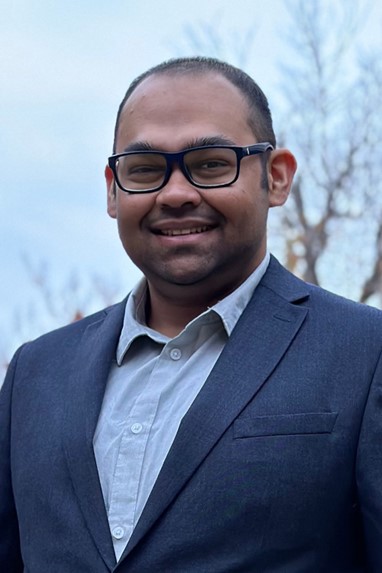
Satwik Dutta MS’20
Phi Kappa Phi 2021 Graduate Research Grant
Patty Atchley Service to Student Life Award
Speech Technology Researcher Awarded Quad Fellowship
University of Texas at Dallas electrical engineering doctoral student Satwik Dutta MS’20 has been selected as a member of the first cohort of Quad Fellowships, a multinational scholarship program launched by the governments of Australia, India, Japan and the United States (the Quad) to build ties among the brightest next-generation STEM scholars.
Each of the 100 master’s and doctoral students in science, technology, engineering and mathematics (STEM) was selected for their commitment to innovation with an eye toward positive social impact and collaboration among the private, public and academic sectors. Each scholar — 25 from each nation — receives a $50,000 fellowship to study in the U.S. The program was created in 2021, emerging from the first in-person Leaders’ Summit of the Quad between President Joe Biden and the leaders of the other three nations.
Dutta will participate in trips to each country that encourage cross-cultural exchanges and will have networking and professional opportunities focused on the intersection of STEM and society, ethics and innovation and emerging technologies. The fellowship program is operated and administered by Schmidt Futures, a philanthropic initiative of Wendy and Eric Schmidt, former Google CEO, and is supported by founding corporate sponsors Accenture, Boeing Co., Blackstone, Google, Mastercard Inc. and Western Digital.
In a December 2022 statement congratulating the recipients, U.S. National Security Advisor Jake Sullivan saluted the inaugural Quad Fellows as diverse, interdisciplinary, inspiring and exceptional students who are the next generation of great STEM minds.
“These young people will bring the Quad closer together, and with them leading the way, we are confident our future is in good hands,” he said.
“Satwik constantly looks for ways to include others, especially undergraduate students in our research. He is a student with the passion to make a difference and change the world for child language and education advancements.”
Dr. John Hansen
Associate Dean for Research, Professor of Electrical Engineering, Founder and Director of the Center for Robust Speech Systems, Distinguished Chair in Telecommunications
Deciphering Early Language
Dutta was chosen as a Quad Fellow from his native country of India and began his graduate studies in the Erik Jonsson School of Engineering and Computer Science in 2018. He has participated in multiple research projects that bridge the gap between spoken language technology and speech/language development or disorders. Dutta has worked with Jonsson School faculty at the Center for Robust Speech Systems (CRSS) in speech recognition technology and with speech-language disorder researchers at the Callier Center for Communication Disorders and the University of Kansas’ Juniper Gardens Children’s Project.
Dutta’s goal is to create algorithms that learn to understand the speech of preschool children.
Satwik Dutta’s Student Experience
ECE Graduate Student Experience
Innovation, Collaboration Come Together at First UTD Research Day
“It’s difficult for parents of preschool children to gauge their child’s language development because they don’t know what is normal — they may have no basis for comparison,” he said. “It’s also extremely challenging for a preschool teacher to track the engagement of every student. Having tools that can provide frequent, reliable data on children’s classroom engagement can help teachers identify children who might need additional support or early intervention.”
For his electrical engineering master’s degree, Dutta worked with Callier faculty — including former director Dr. Thomas Campbell — in collaboration with CRSS on a project called SpeakEasy, an app for screening speech-sound skills in preschool children. For his doctoral research, he is working with CRSS director Dr. John Hansen, the Jonsson School’s associate dean for research and Distinguished Chair in Telecommunications, on quantifying effective learning engagement for child-adult communications in naturalistic settings such as classrooms, museums and households.
“Satwik constantly looks for ways to include others, especially undergraduate students in our research,” Hansen said. “He is a student with the passion to make a difference and change the world for child language and education advancements.”
Dutta’s research involves collecting audio samples via a small recorder placed in a pouch in the young subjects’ clothes. His intention is to develop a system that can not only distinguish and count the number of words spoken by a child but also categorize interrogative words to gauge interactions with parents and teachers.
“A conversational AI system that’s trying to understand what you’re saying, like Siri or Alexa, requires an enormous amount of speech data. But not much young-child speech data is available,” Dutta said. “Keeping young subjects and their families’ privacy in mind and assisted by practitioners, we’ll be able to identify children who need more support.
“The Quad Fellowship will provide me with an opportunity to network with leading innovators in academia and industry, government and society and can help me accelerate my research while also creating more awareness about speech, language and hearing sciences and the role technology can play for the collective good.”
A version of this story appeared in the News Center.